The “Auro Ratna Award” was started by Overman Foundation in 2010 as an attempt to recognize the invaluable contribution of Aurobindonians in the field of literature, research, philosophy and education and felicitate the ‘true children’ of the Divine who, as defined by the Mother, are those few individuals who have consecrated all of themselves and all they have—soul, life, work and wealth.
The list and brief biographies of the ‘Auro Ratna’ awardees are as follows:
2022
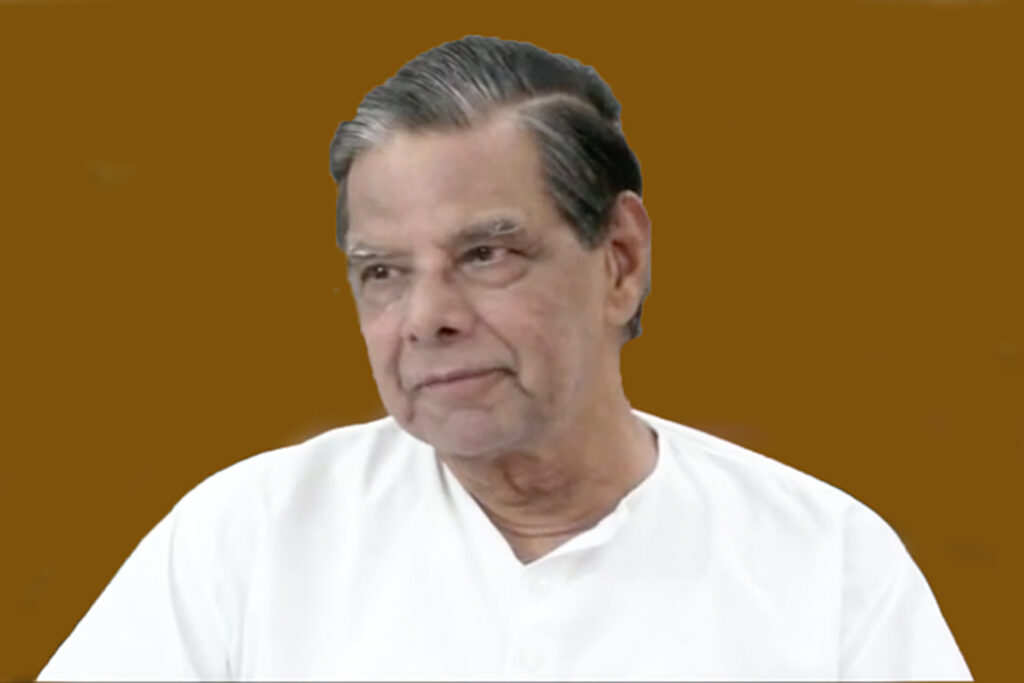
Dr. R. Y. Deshpande: Born on 17 April 1931 in Aurangabad district of Marathwada, Dr. R.Y. Deshpande did his science studies from Osmania University, Hyderabad, India, in 1955, and joined as a research physicist at the Tata Institute of Fundamental Research, Mumbai in the same year. Later he worked at the Lawrence Radiation Laboratory, Berkeley, California USA, and the Bhabha Atomic Research Centre, Mumbai.
While at BARC he was in the beginning engaged in particle detectors and crystal growth. Later he headed several Atomic Energy and Space Projects in Advance Technology. He has some fifty research papers published in national and international scientific journals. He was also an examiner for a number of PhD theses in the field of Solid State Physics.
In 1981 R. Y. Deshpande joined Sri Aurobindo Ashram Pondicherry in search of deeper academic and spiritual matters. Here in the Ashram’s International Centre of Education he taught at higher level for thirty years physics and a few other subjects such as Astrophysics, Savitri, The Future Poetry, Science and Society. During the same period he was for eight years the associate Editor of Mother India, a Monthly Review of Culture, published by the Ashram.
During 2007-2008 R. Y. Deshpande was a senior editor of Science-Culture-Integral Yoga Web-Magazine, SCIY founded in Los Angeles. For three years he ran a highly successful web-journal, Mirror of Tomorrow, with a readership running at times to 1500 each day. Presently he is connected with a website, http://savitri.in, devoted specifically to Sri Aurobindo’s epic Savitri and cultural matters of national and international interest. He gave on different fora, including Radio and TV, interviews, talks and seminars dealing with social, spiritual, scientific and literary aspects.
Deshpande-ji’s literary activities include writing poetry, essays, articles, book reviews, comments which have been published in a few cultural periodicals. He is a published author of some fifty books of poetry, literary criticism, Aurobindonian philosophy and culture, two reflective books on science and related social matters.
His interest in science continues to ask deeper questions. One of the questions he asks is: “Can there be an Indian Science?” He believes that there has to be one, an Indian scientist asking Indian questions of fundamental nature, and not doing follow-up research of the western kind, an Indian doing here in India or in the western laboratories and universities.
These questions could be, for instance, what is it that really constitutes the materiality of Matter, the substantiality of Substance, Matter as a foundation and as an instrument for the action of the spirit in its growing manifesting dimensions, Matter discovering its growing widening truth or truths. This has to be done in the originality of Indian psyche, Indian search of the basics, establishing-interweaving link between Space-Time-Matter and the forces of interaction in form-building. Eventually these must stand up the tests of empiricism.
As a poet he has a book of selected poems, titled Pravarā in Spate running into 300 pages, published in 2020 by Savitri Foundation. His deeper connection with privileged Néwasé where Jñāneshwarī was composed is striking, is felicitous.
In 2015 he visited Italy extensively and gave Savitri-related talks at various places; many of these have now come out in the book form, some of them in Italian. He would however now like to focus his attention mainly on Savitri in its several creative dimensions. It is believed that his full series of talks on Savitri, particularly Book Seven, The Yoga of Savitri, will be an enduring major contribution in this field. These are available at savitri.in.
R. Y. Deshpande’s anthologies of poetry include titles like The Rhododendron Valley; All is Dream-Blaze; Under the Raintree; Paging the Unknown; Passing Moments; Birth of Savitṛ; Isn’t that something?; Pravarā in Spate; These mountains; Triads and Sonnets; Hymns to Becoming; Episodes; Cantos for Recitation; The Nod of Nandi; Collected Poems — Narratives; Collected Poems — Musings and Marvels; Collected Poems — Lyrical; Collected Poems — These Mountains; The Master and the Mother. His prose works include titles like : The Ancient Tale of Savitri; Vyasa’s Savitri; “Satyavan Must Die”; Narad’s Arrival at Madra; Sri Aurobindo and the New Millennium; Towards New Age; The Wager of Ambrosia; Savitri Talks: The Symbol Dawn; A Look at the Symbol Dawn; The Symbol Dawn: An Extended Resumé; Savitri’sSwapna Yoga; Sonnet- like Passage in Savitri; Savitri the Poetry of Immortality; A Few Aspects of Savitri; The Vision and the Boon — A Recitation in Ghana Style; At the Motrano Retreat — The Book of the Divine Mother; The Editing of Savitri; Man- handling of Savitri; Music from the Black Piano; Apropos of Savitri Composition; Running through Savitri; Sanātana Dharma; Four Powers in the Social Dynamics; Nagin-bhai Tells Me; An Atrocious Biography; Big Science and India; Islam’s contribution to Science; The First Hymn of Rishi Vāmadeva; O Fire, O divine Flame; Savitri in Ghana Recitation Part One; Savitri in Ghana Recitation Part Two; Savitri in Ghana Recitation Part Three; Scansion of Savitri — Book One — The Book of Beginnings; Book One Canto Four: The Secret Knowledge; Scansion of Savitri — Book Three — The Book of the Divine Mother; Chants to Agni; Savitri — Notes and Comments Part I; Savitri — Notes and Comments Part II; Two Dialogues Apropos of Savitri; Stray Essays; Of Inspiration and Technique in Savitri; Upon My Honour; Scribbles and Notes; The Book of Abhirūpā; Towards Intermediate Race; Savitri — Notes and Comments Part III; The Book of Love and Glory to Them. He has also edited Perspectives of Savitri in two volumes, the first edition of Savitri, The Mother on Savitri; Wisdom Quotes from Savitri; The Radiant Daughter; Savitri with Accents; Savitri and The Yoga of the Cells; Amal Kiran Poet and Critic; One-line Sentences in Savitri.
To read the report of the “Auro Ratna Award” ceremony 2022, kindly click on the following link:
To view the video of the said award ceremony, kindly click on the following link:
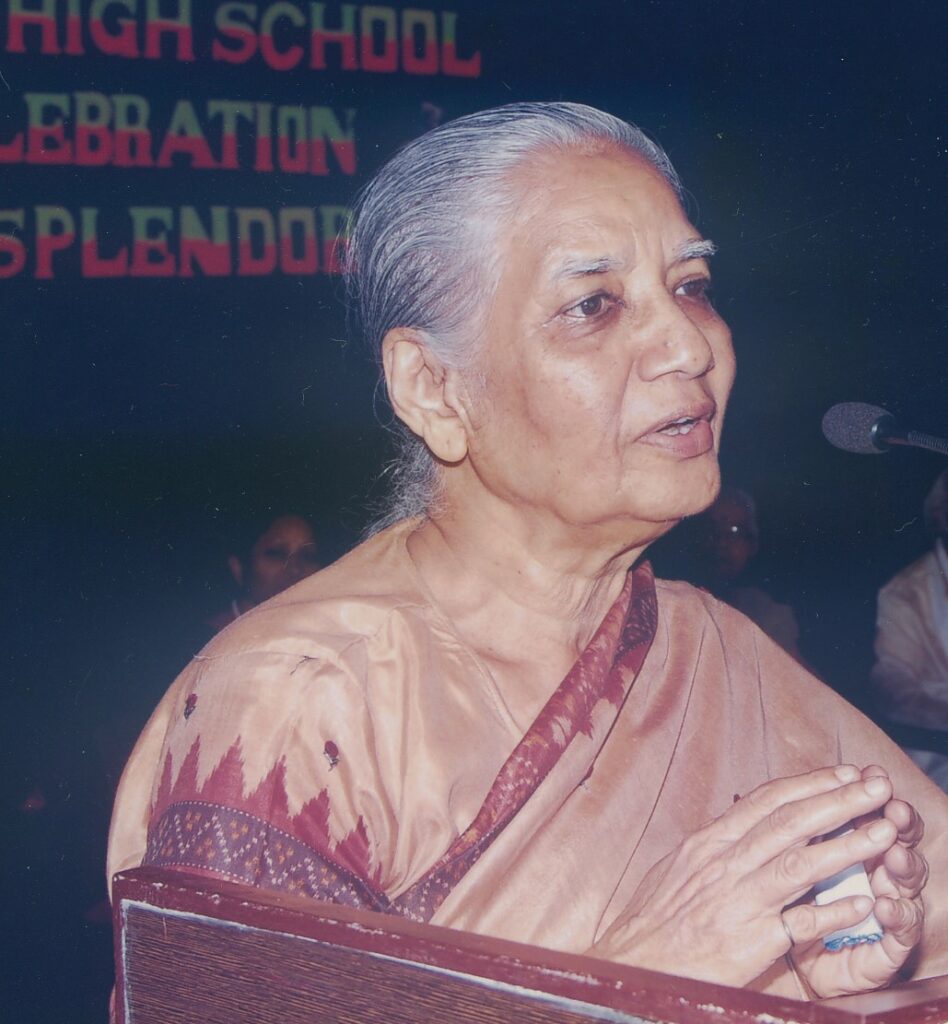
Shyam Kumari: Shyam Kumari was born on 19 December 1934 in Muzaffarnagar, Uttar Pradesh. There she studied in the Vedic Putri Pathshala and S. D. Degree College up to her B.A. In 1965 she passed her M.A. from Lucknow University. Since her childhood, she yearned to find God. In 1969, the Mother of Sri Aurobindo Ashram, Pondicherry, accepted her as an inmate of the Ashram and appointed her a teacher in the Sri Aurobindo International Centre of Education.
Shyam Kumari was a prolific writer who has authored more than seventy books in English and Hindi. Hundreds of her poems, lyrics, stories, plays, literary and social essays have appeared in national and international journals. Some of her notable books in English include titles like Vignettes of Sri Aurobindo and the Mother, More Vignettes of Sri Aurobindo and the Mother, Beautiful Vignettes of Sri Aurobindo and the Mother, How They Came to Sri Aurobindo and the Mother in four volumes, Musings on the Mother’s Prayers and Meditations in three volumes, Sunlit Days, Sweet Steps, Towards Light, Teacher’s Guide to Sunlit Days, Sweet Steps and Towards Light. Her books in Hindi include titles like Bharat, Vishwa aur Manavta ka Bhavishya — Sri Aravind evam Sri Ma kay Alok may, Bhagwan Ki Oar in two parts, Sri Arvind Aur Sri Ma Ki Divya Lila in two parts, Gulab Ki Pankhuriyan (an anthology of 21 stories), Aparajita (a collection of 24 stories and 2 plays). Prem Divani (a collection of 35 stories and 2 plays), Jeenay Ki Kala in two parts, Anupam Kahaniya in four parts, Madhur Kahaniya in two parts, Shishu Rang Tarang, Nav Bal Rang Tarang in two parts and Nav Rag Anurag. Many of her books have been translated into Hindi, Oriya, Tamil, Bengali, Marathi and Gujarati. She has written path-breaking rhymes and story books for children. In 1998, she launched a Hindi quarterly magazine named Swarna Hansa, which she single-handedly wrote, edited and published for twenty years.
In 1998, Shyam Kumari established Vraja Trust, a public charitable trust and is presently its Managing Trustee. In 2001, she started Sri Aravinda Sanskrit Vidyalaya in Pondicherry to impart free Sanskrit education to children and adults alike and she is its Chairperson. In 2005, she launched the “Let Each School Adopt a Hero” scheme which were followed by schemes like “Let Us Honour Our Soldiers” and “Let Each Child Become a Hero Warrior” in 2006.’
Shyam Kumari passed away on 14 February 2023.
2019
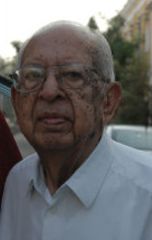
Dr. Ardeshir S. Dalal: Born in Tanzania on 17 February 1926 to Suleiman and Kusum Dalal, Dr. Ardeshir S. Dalal developed a keen interest in questions pertaining to God and the origin of the universe when he was in his fifteenth year. Despite being born in a conservative Muslim family, he was drawn to all religions and went to Muslim, Hindu and Christian places of worship. Having completed his high school education at Tanzania in 1944 he came to India in 1945. At the age of nineteen he came in contact with Theosophy and found the answers to his intellectual queries in the works of H. P. Blavatsky. He joined St. Joseph’s College in Bangalore for his Bachelor of Arts degree but later shifted to Wadia College in Pune from where he obtained his degree in 1950. Meanwhile, when he was twenty-one years old, he came in close contact with a devotee of Sri Aurobindo and the Mother who introduced him to Their works and teachings. The Mother’s Prayers and Meditations particularly made a strong impact on him. In April 1950, he visited the Sri Aurobindo Ashram at Pondicherry, stayed for a week in the town and had the Darshan of Sri Aurobindo and the Mother on 24th April. The Darshan of Sri Aurobindo was a turning point in his spiritual quest and he grew less interested in Theosophy and more drawn to the yoga of Sri Aurobindo. He wanted to do his Ph.D on Sri Aurobindo but could not find a guide. He visited Pondicherry in 1951 and expressed to the Mother his keenness to join the Ashram. The Mother, however, remained silent. Following the advice of Manibhai Patel, a follower of Sri Aurobindo and the Mother, he went back to Tanzania where he took up a temporary job. Meanwhile, Khodabhai Patel, a senior member of the Ashram who was also from Tanzania, wrote to Dr. Dalal asking him to come back to Pondicherry. Dr. Dalal replied that he had asked the Mother for permission to stay in the Ashram but She did not give any reply. Khodabhai assured him that he would talk to the Mother. He did. The Mother responded that Dr. Dalal could take a long leave from his job and visit Pondicherry but advised him not to resign. Since taking a long leave was not possible, Dr. Dalal resigned from his services and came to the Ashram in November 1951.
‘A few days before his twenty-sixth birthday, Dr. Dalal approached the Mother with the request of being accepted as an Ashramite. On 17 February 1952—on his birthday—the Mother accepted him as a member of the Ashram community. From 1952 to 1959 he worked in the Ashram Press as the assistant to Naren Das Gupta, the then Manager of the Press, and father of Manoj Das Gupta, the present Managing Trustee of Sri Aurobindo Ashram Trust.
‘In 1959 Dr. Dalal left Pondicherry, went back to Poona University from where he completed his Masters in Experimental Psychology. He got married on 18 December 1961 and went back to Tanzania in 1962. When Tanzania got her independence, he shifted to the United States of America in 1964 where he worked, for the next two years, as a pre-doctoral intern in a mental health centre in Boston. At the same time he pursued his Ph.D at the University of Boston. Later he shifted to New York where he worked in a Post Graduate Centre in Medical Health from 1966 to 1970 as a trainee in Psychotherapy and Psychoanalysis. Afterwards he took a job in Oregon where he worked till 1981. Meanwhile he also obtained his Ph.D degree. In 1981 he resigned from his services, went to Ohio and joined the Institute of Integral Psychology (which was founded under the influence of M. P. Pandit) and worked there for two years. In 1985 he shifted to Dumont and finally returned to Pondicherry in January 1986. For the next twenty years, he was associated with Tresor Nursing Home.
A brilliant exponent of the teachings of Sri Aurobindo and the Mother, Dr. Dalal has compiled the following noteworthy books from the works of Sri Aurobindo and the Mother which have been received warmly by critics and readers alike: Emergence of the Psychic (Governance of Life by the Soul), Growing Within (The Psychology of Inner Development), The Hidden Forces of Life, Living Within (The Yoga Approach to Psychological Health and Growth), Living Words (Soul-Kindlers for the New Millennium), Looking from Within (A Seeker’s Guide to Attitudes for Mastery and Inner Growth), Morality, Idealism, Religion and Yoga (The Meaning of Spirituality), Our Many Selves (Practical Yogic Psychology), Powers Within, The Psychic Being (Soul—Its Nature, Mission and Evolution), Steps to Freedom and Mastery and The Yoga of Sleep and Dreams. His other books A Greater Psychology: An Introduction to the Psychological Thought of Sri Aurobindo, Sri Aurobindo and the Future Psychology and Eckhart Tolle and Sri Aurobindo have also been favourably received.
In 2008, Dr. Dalal was presented with the prestigious ‘Sri Aurobindo Puraskar’ by Sri Aurobindo Bhavan, Kolkata.
To read the report of the “Auro Ratna Award” ceremony 2019, kindly click on the following link:
2018
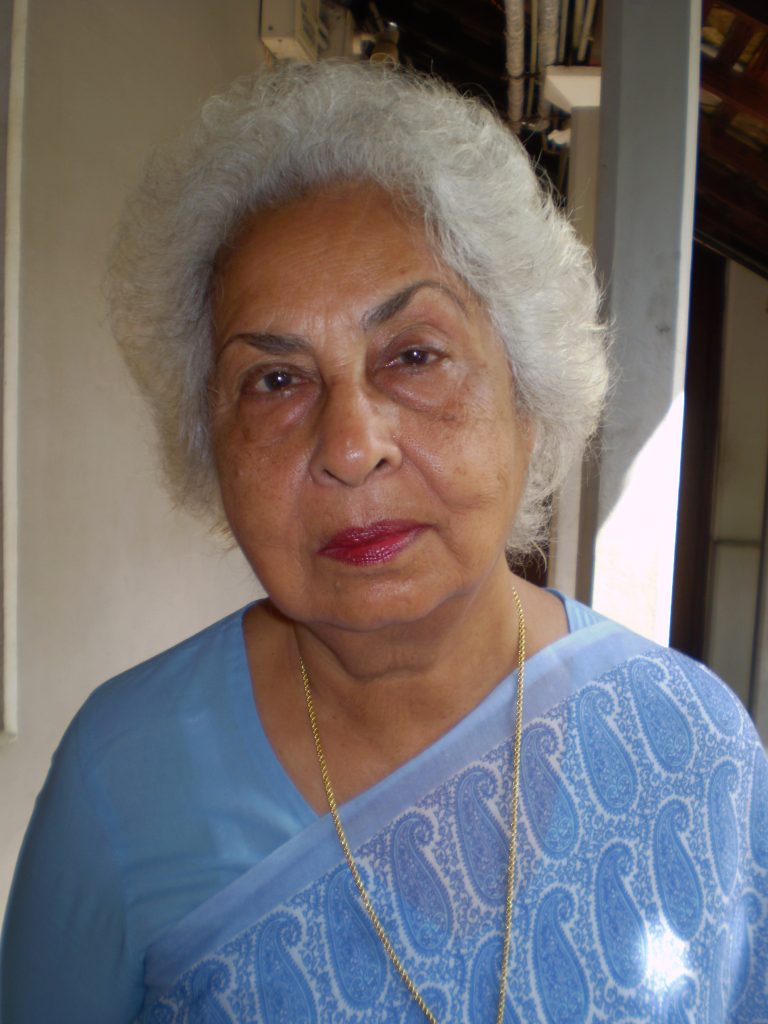
Dr. Aster Patel: Born on 17 March 1932 to Dr. Indra Sen — a genius in the field of psychology who also developed the course of Integral Psychology in the light of Sri Aurobindo’s vision — and Lilavati, known as Violette in the Ashram community who was also a reputed social worker, Dr. Aster Patel was initially named Mira. Having visited the Sri Aurobindo Ashram for the first time in 1940, she joined it in April 1943 at the age of eleven with her mother and brother. She received — from the Mother Herself — the new name of Aster. She was one of the first students of the Ashram School when it was started in December 1943. Her very first work in the Ashram was to arrange flowers in big trays which were taken to the rooms of Sri Aurobindo and the Mother. While she was still a student, the Mother asked her to start teaching. Therefore, at the age of sixteen, Dr. Aster Patel started teaching the young students of the Ashram Schoo. Later she also worked as Dr. Indra Sen’s secretary, managed his correspondence and typed his writings. From 1962 to 1970 she stayed in Europe. During this period she obtained her PhD. In Comparative Literature from the University of Paris (Sorbonne), the subject of her thesis being A Comparative Study of the Philosophies of Sri Aurobindo and Henri Bergson. She returned to Pondicherry in 1970 and resumed teaching at the Higher Course of Sri Aurobindo International Centre of Education. She has held the Sri Aurobindo Chair of Philosophy at Benares Hindu University. In 2005 she received the prestigious ‘Sri Aurobindo Puraskar’ awarded by Sri Aurobindo Bhavan, Kolkata. For almost 48 years she has been associated with Auroville and held responsibilities in the International Zone at the Centre for Research in Indian Culture and the Centre of Indian Studies in Bharat Nivas. She was also a member of the Governing Body of the Auroville Foundation. She has participated in numerous seminars and conferences organized by various institutions and universities in India, Paris, New York, at UNESCO and the United Nations. She is also a brilliant writer who has authored and published papers in philosophy, integral psychology, education and yoga. An anthology of her writings was published in 2006 under the title of The Presence of Time.
To read the report of the “Auro Ratna Award” ceremony 2018, kindly click on the following link:
To view the video of the said award ceremony, kindly click on the following link:
2017
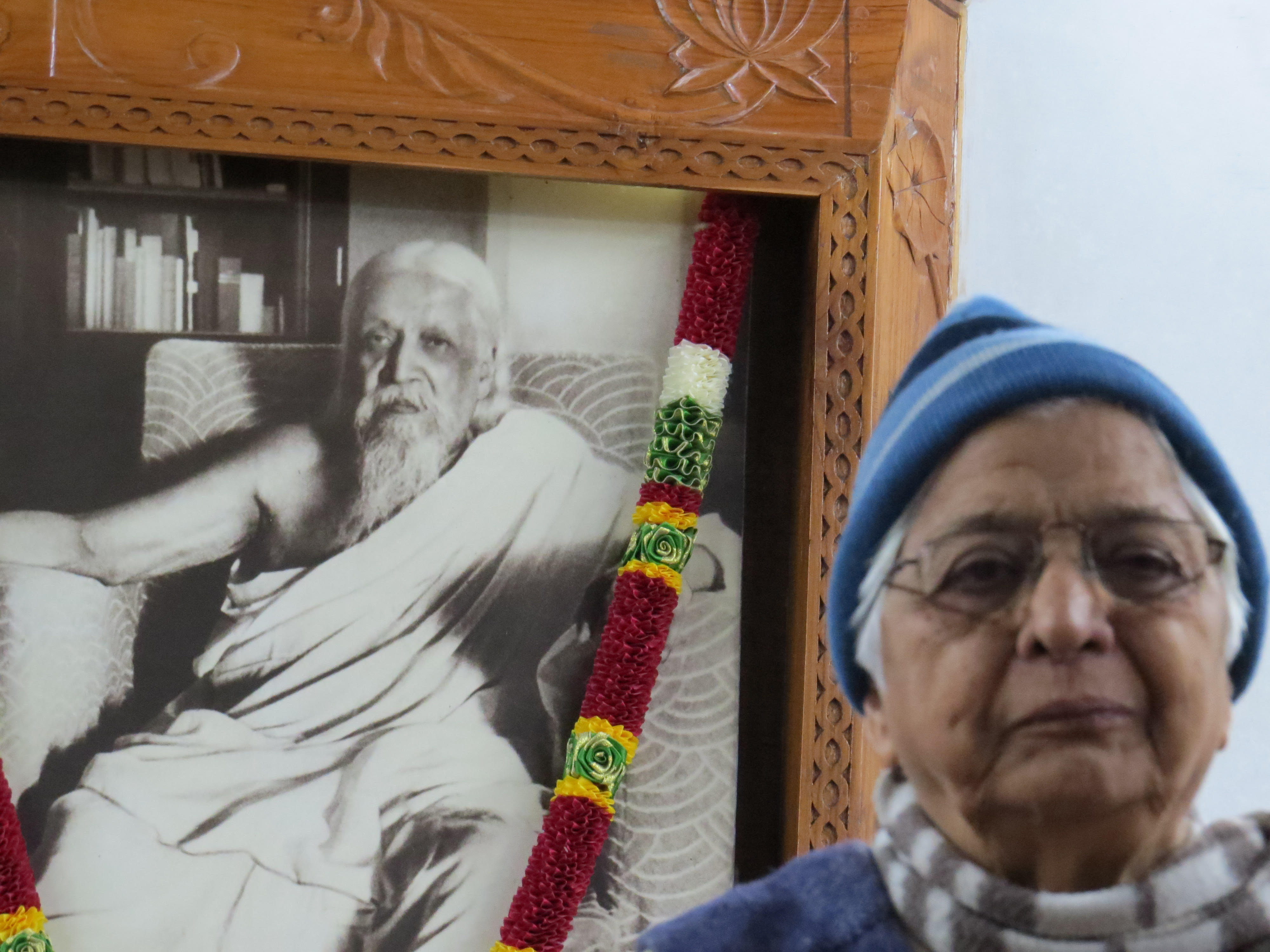
Tara Jauhar: Born to Surendranath and Dayawati Jauhar on 5 July 1936, Tara Jauhar joined the Sri Aurobindo Ashram in Pondicherry on 1 August 1944 at the age of eight. For the next twenty-nine years, she lived in close proximity to the Mother and received Her infinite love, affection and guidance. In 1946, when she was only ten years old, the Mother had made her the captain of Group A which consisted of children aged between six and nine. From 1959 to 1972, she asked the Mother several questions on Sri Aurobindo’s Thoughts and Aphorisms as well as on the last chapters of The Life Divine, flowers, vegetal life, education and also queries which arose during the course of her study of Sri Aurobindo’s work and those related to her own work and life. Tara played an extremely significant role in organizing and running the Department of Physical Education of the Sri Aurobindo Ashram. On 1 August 1971, the Mother wrote to Tara on the occasion of the latter’s twenty-seventh year in the Ashram: “27 years of growth of progress and useful work have given you a special place in the Ashram with special love from Sri Aurobindo; as well as my great tenderness and constant blessings.” After the Mother left Her body, Tara shifted to Sri Aurobindo Ashram Delhi Branch and took charge of it. Under her able leadership, the Sri Aurobindo Ashram Delhi Branch (of which she is the Chairperson) became one of the finest spiritual institutions of the country. With her managerial expertise and leadership skills, she also developed the Himalayan retreat centres of Van Niwas in Nainital and Madhuban in Talla Ramgarh. She has also authored two books titled Growing Up with the Mother and Learning with the Mother.
To read the report of the “Auro-Ratna Award” 2017, kindly click on the following link:
To view the video of the said award ceremony, kindly click on the following links:
2016
Chitra Bose: Hailing from the illustrious zamindar family of Basirhat (now in North 24 Parganas), Chitra Bose was born on 17th March 1933 to Harendra Nath Majumdar and Santi Majumdar. Harendra Nath Majumdar, a nephew of Swami Brahmananda (a direct disciple of Sri Ramakrishna and the first President of Ramakrishna Mission), was a noted Congressman and active participant in the struggle for India’s independence. He was in the company of Mahatma Gandhi during his stay at Haidari Bhavan at Beliaghata. Later, Harendra Nath Majumdar became a minister in the cabinet of Dr. Prafulla Ghosh (the former Chief Minister of West Bengal) in the late 1960s. A devotee of the Mother, he was also the erstwhile Chairman of Sri Aurobindo Society West Bengal. From her childhood days Chitra Bose came in touch with personalities like Dr. Bidhan Chandra Roy, Dr. Prafulla Ghosh, Sri Atulya Ghosh and other eminent persons. She did her schooling from Brahmo Girls School and later graduated from Presidency College, Kolkata. Eminent scholars like Prof. Amartya Sen and Prof. Sukhomay Chakravarty were her batchmates. She met the Mother at Sri Aurobindo Ashram, Pondicherry, where she used to visit with her father. She married K.C. Bose, the later Additional General Manager of Eastern Railway in the Indian Railway Service.
After the Sakti Centre was established in New Alipore in 1972, a kindergarten school was established there by her in 1977, christened Sri Aurobindo Bal Mandir with only 5 students and mattresses to sit upon owing to lack of basic furniture in the then dilapidated building. Under her stewardship, Sri Aurobindo Bal Mandir grew up to be one of the eminent pre-primary schools of south Kolkata based on the ideas and ideals of Sri Aurobindo and the Mother, providing quality education with a present strength of 350 students in Nursery and Kindergarten sections. She was the mentor and guiding force of the school. She passed away on 13th August 2016.
2015
Manoj Das: Born on 27 February 1934 to Madhusudan Das and Kadambini Devi in Sankhari, a remote coastal village of Odisha, India, Manoj Das grew up amidst loving rural folks and Nature’s splendours but also had the horrific experience of a devastating cyclone followed by famine crushing his locality. At the age of eight he stood witness to his affluent home on the sea being plundered by savage gangs of bandits, not once but twice.
In town for study, writing came to him spontaneously and his first book in Odia, Satavdira Artanada, was published when he was fourteen. At fifteen he launched Diganta, which, in course of time, grew into a significant literary journal in the state. In search of some panacea for human suffering he became a revolutionary youth leader while in college, leading several agitations, courting jail, becoming unopposed President of the University Law College Union, General Secretary of the Students Federation and playing an active role in the Afro-Asian Students Conference at Bandung, Indonesia, in 1956.
His quest, however, led him to mysticism and, after serving as a lecturer in English at Cuttack for four years, he, along with his wife, Pratijna Devi, a scion of the Raj family of Kujang whose parents were renowned freedom fighters, joined the Sri Aurobindo Ashram at Pondicherry in 1963 which became their permanent abode.
Though outside his home state he is widely known as one of the best-loved and serious among the Indian writers writing in English, he is also probably the foremost successful bilingual writer in the country. He had been a regular columnist on literary and cultural themes for some of the major newspapers in India such as The Times of India, The Hindustan Times, The Hindu and major Odia dailies.
He was the editor of a prestigious monthly commanding an international circulation, The Heritage (1985-1989) published by the Chandamama Publications of Chennai and an author-consultant to the Ministry of Education, Government of Singapore (1981-1985), visiting the island nation twice a year for taking classes of a hundred teachers.
His research in the archives of London and Edinburgh in 1971 brought to light some of the significant glimpses of India’s struggle for freedom led by Sri Aurobindo in the first decade of the 20th century. He received the first Sri Aurobindo Puraskar for this pioneering work, offered by Sri Aurobindo Bhavan, Kolkata (the birth place of Sri Aurobindo), supported by the Government of West Bengal.
The numerous accolades he has received include India’s national award for creative writing—the Sahitya Akademi Award, the Odisha Sahitya Akademi Award (twice), the Sarala Award, the Sahitya Bharati Award (by now Odisha’s premier award that began with honouring him), the Bharatiya Bhasha Parishad (Kolkata) Award, The BAPASI (Booksellers and Publishers Association of South India) Award as the best writer in English in the South for the year 1998 and Rotary’s ‘For the Sake of Honour’. The Odisha Sahitya Akademi also bestowed on him its highest honour, the Atibadi Jagannath Das Samman.
He was the leader of the Indian Writers’ Delegation to China in 2000.
The President of India decorated him with the Padma Shri Award on the Republic Day, 2001. This was followed by India’s most prestigious award for literature, the Saraswati Samman. Utkal Sahitya Samaj, the hoary literary organization of his home state, Odisha, bestowed on him Utkal Ratna. While one university made him its honorary Professor Emeritus, the Utkal University of Culture chose him alone to be conferred with D.Litt. (Honoris Causa) in its very first convocation. That was followed by four other universities awarding him honorary D.Litt. including the oldest university of his home state, the Utkal University and his alma mater, the Ravenshaw University.
The Sahitya Akademi, our national academy of letters, has conferred on him its highest honour, Fellowship, which, according to its constitution, is “reserved for the immortals of literature”. Lately he received the NTR National Literary Award conferred by the NTR Vigyan Trust, Hyderabad, as an outstanding Indian writer in May 2013 and in October 2013 he was awarded the Amrita Keerti National Award by the Mata Amritanandamayi Trust, Amritapuri, Kerala, on the occasion of the 60th birth anniversary of renowned mystic and philanthropist. In 2014 he was bestowed with the Samman Puraskar by Lala Diwan Chand Trust, New Delhi.
He is recognized as a competent interpreter of India’s literary and spiritual heritage. Of the numerous talks he has given under schemes such as the UGC-sponsored Extension Lectures at different universities or literary, educational or spiritual fora in India and abroad, mention can be made of a few:
He was chosen to deliver the first UNESCO lecture organized by the Department of Education, Ministry of Human Resources Development, Government of India in 1998 at the National Museum Auditorium at New Delhi. He was invited to deliver the first Sri Aurobindo Memorial Lecture instituted by the National Council of Educational Research and Training (New Delhi) at the Calcutta University, Presidency College Auditorium in 2008. He was invited to deliver Sahitya Akademi’s prestigious annual oration, the Samvatsar Lecture, at the Rabindra Bhavan auditorium at New Delhi in 2009. He was chosen to preside over the inaugural function of the 20th World Book Fair at New Delhi in 2012. He is one of those living writers on whom maximum number of scholars has done their doctoral theses either in English or in Odia.
His major works in English include Selected Fiction of Manoj Das (Penguin), Chasing the Rainbow: Growing up in an Indian Village (Oxford University Press), A Tiger at Twilight and Cyclones, two novels clubbed together (Penguin), My Little India (National Book Trust) and The Bridge in the Moonlit Night and other Stories (National Book Trust). He is also one of the best-loved writers for children. While his Stories of Light and Delight, published in 1970, continues to be the largest selling story book for children in India till date, several other books for children like Books Forever, A Bride Inside a Casket, Legend of the Golden Valley, etc. are not lagging far behind.
Among his non-fictional works are a monograph on Sri Aurobindo published by the Sahitya Akademi on the 15th of August, 1972 and released in a function in New Delhi the same day by the then President of India, V.V. Giri in celebration of the Master’s Birth Centenary and Myths, Legends, Concepts and Literary Antiquities of India (Sahitya Akademi). His edited works include The Hour of God and other Selections from Sri Aurobindo (Sahitya Akademi) and Streams of Yogic and Mystic Experiences, a huge volume comprising treaties by about 40 scholars. This volume commissioned to him by Centre for Studies in Civilization, Ministry of Education, is much appreciated for the elaborate Introduction written by him.
Manoj Das is among those few living writers on whose life the Sahitya Akademi has produced a documentary film. About him, Ruskin Bond had once remarked, “There are only a few good story-tellers left in the world today and Manoj Das is one of them.” Dr. K. R. Srinivasa Iyengar had bracketed him in the art of short story with Rabindranath Tagore and Munshi Premchand.
To read the report of “Auro-Ratna Award” 2015, click on the following link:
To view the video of “Auro-Ratna Award 2015” ceremony, kindly click on the following link:
2014
Shobha Mitra: Born on 14 December 1933 to Amarendranath and Ashalata Mitra, Shobha Mitra—whom the late M. P. Pandit had called “worthy child of the Mother”—visited Sri Aurobindo Ashram for the first time in August 1942. At the age of seventeen, on Wednesday 15 June 1951 she joined Sri Aurobindo Ashram with her mother. The Mother had arranged for their accommodation at Red House which was located near the Ashram Library. She was given work in the Publication Department under Prithwi Singh Nahar. A year later she was made a permanent inmate of Sri Aurobindo Ashram. She joined the Ashram School when its new session began in December 1952. Following the instruction of the Mother, she opted to study English, French, Philosophy and the works of Sri Aurobindo. She also began to learn music from Dilip Kumar Roy and Sahana Devi. From 1957 she started teaching French in the Ashram School. She was an accomplished dancer and had given several dance-recitals before the Mother. She had also given dance-form to Sri Aurobindo’s The Hour of God in 1964. She also composed the dance-drama The Rhythm Eternal which was staged thrice in May 1967. She has also played a pivotal role in organizing musical programmes of artists like Birendra Kishore Ray Choudhury, Tara Ghoshal, Jyotsna Bole, Chandralekha and Pankaj Kumar Mullick to name a few who visited the Ashram. On 14 December 1965—on Shobha’s birthday—the Mother asked her to start a Music Section in Sri Aurobindo International Centre of Education which she built up from scratch. Inspired by the Mother, she also began to compose music. In 1972, on the occasion of Sri Aurobindo’s Birth Centenary, she conceptualized a special programme titled Sri Aurobindo and the Mother on India and Her Future. In that very year, a long-playing record of her musical compositions titled Loving Homage was brought out by Sri Aurobindo Society. For quite some time she had conducted singing classes in Auroville.
Shobha Mitra’s recorded compositions include Durga Stotra, Invocation to Mother India, Salutations, Invocation, Adoration, Matri Puja (songs of Kobi Nishikanto), Laha Pranam, All We Owe to Thee, India and Her Future, Esho Gahi Gaan (songs in Bengali for children), Aspiration, Towards A Luminous Future, Om Namo Bhagawate (Hymns of T. V. Kapali Sastri), Vers Un Avenir Lumineux (a musical presentation on the occasion of the unveiling of Sri Aurobindo’s statue at UNESCO, Paris, on 16 September 2009), Century’s Salutations, Pujar Argha, Anjali, Vandanam (songs of Pujalal) and Our Gratitude. Some of her memorable musical compositions performed at Sri Aurobindo Aurobindo Ashram, Pondicherry, include The Story of Creation (the Mother’s story dramatized for the 1st December programme), The Rhythm Eternal (performed for the special darshan of 4 May 1967), Argha (performed before the Mother), A Musical Journey Around the World (songs in twenty five languages), India and Her Future (in 1972 during Sri Aurobindo’s Birth Centenary for which she got an offer for world tour which the Mother refused), Bharatavarsham, Janmabhumi, Towards the Future (during Sri Aurobindo’s Birth Centenary in 1972), The Mother (during the Mother’s Birth Centenary Celebrations), A Call to the Young, Compositions based on the Prayers and Meditations (for 1st December programme), To the Mystic Fire, Surya Namaskar (for 2nd December programme), Glimpses of Indian Music (for which she got an offer from the Films Division of India to make a documentary based on the programme but the late Pranab Kumar Bhattacharya, Director of Physical Education Department of Sri Aurobindo Ashram, refused), Kandari (a poem of Nirodbaran set to music) and Sharanam Mama (songs of Vidyapati Kokil).
In 2012 Shobha Mitra’s first book in Bengali Sri Mayer Dibya Sannidhye was published. The English translation of the aforesaid book, Living in the Presence, was published in 2013. In that very year she received the prestigious “Sri Aurobindo Puraskar” from Sri Aurobindo Bhavan, Kolkata.
To read the report of “Auro-Ratna Award” 2014, click on the following link:
To view the video of “Auro-Ratna Award 2014” ceremony, kindly click on the following link:
2013
Dr. Ananda Reddy: Born in 1947, Dr. Ananda Reddy joined the Sri Aurobindo International Centre of Education, at the age of 11 years, in 1958. Born to a family of philosophies, his father Prof. V. Madhusudan Reddy, who did his PhD on Sri Aurobindo’s Philosophy of evolution, brought him out to the Sri Aurobindo Ashram and left him in the care of the Mother. From 1958 to 1969, Ananda Reddy was student of the Ashram School where he studied passionately most of the works of Sri Aurobindo. Inspired by the ideals of the New Consciousness and the New World, as envisioned by Sri Aurobindo and the Mother, Ananda joined, with the Blessings of the Mother, Auroville. He looked after the Aspiration School in its initial stages until he went away in 1976 to Hyderabad to pursue higher studies. On completing his Masters in Literature and in Philosophy in 1978, he pursued his M.Phil at Osmania University with a view to attempt PhD in Sri Aurobindo’s thought. However, his aspiration was fulfilled only in 1988. He joined the Post-Doctoral studies and taught for almost two years at Pondicherry University in the Sri Aurobindo School of Eastern and Western thought. On getting an opportunity to teach philosophy at Assumption University, Bangkok, he left India and experienced teaching in a foreign university from 1992 to 1995. On his return to India, he started his dream project at Pondicherry: Sri Aurobindo Centre of Advanced Research (SACAR), in 1996. On 29th February 2000, SACAR was inaugurated by Nirodbaran. In 2008, the Indira Gandhi Open University (IGNOU) invited SACAR to become its Recognised Research Centre for conducting different programmes in Sri Aurobindo Studies. Apart from conducting workshops and participating in International Seminars all over Europe and the United States, Dr. Reddy took regular classes for adults at the Sri Aurobindo Ashram, giving them explanations of Sri Aurobindo’s books: The Life Divine, Savitri, Synthesis of Yoga, Essays on the Gita. Along with these classes, he also gave weekly classes at Savitri Bhavan, Auroville, on Sri Aurobindo and the Mother’s vision. He is at present the Director of SACAR and also looks after the Institute of Human Studies as its Chairman. Apart from his regular teaching at SACAR and Savitri Bhavan, he is also a teacher at “Knowledge”, the higher course division of Sri Aurobindo International Centre of Education. His published works include titles like Deliberations on The Life Divine (Volumes I—IV), Management by Consciousness: The Mother’s Way and Madhumoyee Ma Antare Bahire etc.
To read the report of “Auro-Ratna Award” 2013, click on the following link:
To view the video of “Auro-Ratna Award 2013” ceremony, kindly click on the following link:
2012
Dr. Prema Nandakumar (b: 1939) is a famous independent researcher, translator, critic and authoress who writes in Tamil and English. She was the first to submit the thesis of doctoral degree in Savitri (Sri Aurobindo’e epic poem) in Andhra University. It was published as A Study of Savitri in 1962. Her post-doctoral work has been published as Dante and Sri Aurobindo in 1981. She has authored about twenty-five books in English and Tamil. She is a recipient of several awards which include the ‘Sri Aurobindo Puraskar’ and ‘Panditha Ratna’. She has been a member of the Academic Council, Central Institute of Higha Tibetan Studies, Sarnath, Varanasi (1988-91); Member, Board of Studies in English, Andhra University, Waltair; Manba, National Executive of The Indian P.E.N., Senate member of Bharathidasan University and Visiting Professor, Swami Vivekananda Chair, Mahatma Gandhi University. Her published works include titles like A Study of Savitri, The Glory and the Good, Dante and Sri Aurobindo, Subramania Bharati, Sri Aurobindo: A Critical Introduction, The Mother of Sri Aurobindo Ashram, etc.
Shraddhavan is a writer, educator, translator and editor. She was a student of English language and literature at Bristol University in the United Kingdoms who joined Auroville in 1970 and two years later the Mother gave her the name of ‘Shraddhavan’. She is the In-charge of ‘Savitri Bhavan’, the centre for Sri Aurobindo studies at Auroville which emphasizes on Sri Aurobindo’s epic poem, ‘Savitri’. She also serves as the Editor of the journal Invocation published by ‘Savitri Bhavan’.
To read the report of “Auro-Ratna Award” 2012, click on the following link:
2011
Robi Gupta (25.7.1926—22.12.2013) was the youngest son of the late Nolini Kanta Gupta. He became an inmate of Sri Aurobindo Ashram in 1944. He was one of the foremost poets of Sri Aurobindo Ashram whose works were appreciated by Sri Aurobindo himself who gave him the title of ‘Tagore of the Ashram’. A linguist and the recipient of the prestigious ‘Sri Aurobindo Puraskar’, Shri Robi Gupta’s published works in Bengali include Swapani (1950), Marmomoral (1952), Mandakini (1953), Sarani (1965), Gitiargha (1965), Shiulijhora Bhorer Alo (1998) and Ahoroni (2009).
Dr. Kireet Joshi (10.8.1931-14.9.2014) studied philosophy and law at the Bombay University. He was selected for I. A. S. in 1955 but in 1956 he resigned to devote himself at Sri Aurobindo Ashram to the study and practice the Integral Yoga of Sri Aurobindo and the Mother. He taught Philosophy and Psychology at the Sri Aurobindo International Centre of Education at Pondicherry and participated in numerous educational experiments under the guidance of the Mother. In 1976 the Government of India invited him to be the Educational Adviser in the Ministry of Education. In 1983 he was appointed Special Secretary to the Government of India and held this post till 1988. From 1987 to 1993 he was the Member-Secretary of Rashtriya Veda Vidya Pratishthan. From 1987 to 1990 he served as the Vice-Chairman of the UNESCO Institute of Education, Hamburg. In the Ministry of Education, he was in-charge of Higher Education, National Commission on Teachers, Languages, Youth Affairs and UNESCO affairs. He was also the Chairman of Auroville Foundation and Indian Council of Philosophical Research. His published works include Sri Aurobindo and Integral Yoga, Sri Aurobindo and the Mother, Education for Character Development, Education for Tomorrow, Education at Crossroads, Glimpses of Vedic Literature and Veda and Indian Culture and Philosophy and Yoga of Sri Aurobindo and Other Essays.
Dr. Prithwindra Mukherjee (b. 20th October 1936) is the grandson of the famous revolutionary Jatindranath Mukherjee alias Bagha Jatin. He came to Sri Aurobindo Ashram in 1948, studied and taught at Sri Aurobindo International Centre of Education. He was mentioned by the Sahitya Akademi manuals and anthologies as a poet before he attained the age of twenty. He has translated the works of French authors like Albert Camus, Saint-John Perse and René Char for Bengali readers, and eminent Bengali authors into French. He shifted to Paris with a French Government Scholarship in 1966. He defended a thesis on Sri Aurobindo at Sorbonne. He served as a lecturer in two Paris faculties, a producer on Indian culture and music for Radio France and was also a freelance journalist for the Indian and French press. His thesis for PhD which studied the pre-Gandhian phase of India’s struggle for freedom was supervised by Raymond Aron in Paris University. In 1977 he was invited by the National Archives of India as a guest of the Historical Records Commission. He presented a paper on ‘Jatindranath Mukherjee and the Indo-German Conspiracy’ and his contribution on this area has been recognized by eminent educationists. A number of his papers on this subject have been translated into major Indian languages. He went to the United States of America as a Fullbright scholar and discovered scores of files covering the Indian revolutionaries in the Wilson Papers. In 1981 he joined the French National Centre of Scientific Research. He was also a founder-member of the French Literary Translators’ Association. In 2003 he retired as a researcher in Human and Social Sciences Department of French National Centre of Scientific Research in Paris. A recipient of ‘Sri Aurobindo Puraskar’, in the same year he was invited by Berlin Philharmonic Orchestra for the world premiere of Correspondances, opus for voice and orchestra where the veteran composer Henri Dutilleux had set to music Prithwindra’s French poem on Shiva Nataraja, followed by texts by Solzhenitsyn, Rilke and Van Gogh. In 2009 he was appointed to the rank of chevalier (Knight) of the Order of Arts and Letters by the Minister of Culture of France. He has penned books in English, Bengali and French and some of his published works include Samasamayiker Chokhe Sri Aurobindo, Pondicherryer Dinguli, Bagha Jatin, Sadhak-Biplobi Jatindranath, Undying Courage, Vishwer Chokhe Rabindranath, Thât/Mélakartâ : The Fundamental Scales in Indian Music of the North and the South (foreword by Pandit Ravi Shankar), Poèmes du Bangladesh, Serpent de flammes, Le sâmkhya, Les écrits bengalis de Sri Aurobindo, Chants bâuls, les Fous de l’Absolu, Anthologie de la poésie bengalie and Les racines intellectuelles du movement d’independence de l’Inde (1893-1918) ending up with Sri Aurobindo, “the last of the Prophets”.
To read the report of “Auro-Ratna Award” 2011, click on the following link:
2010
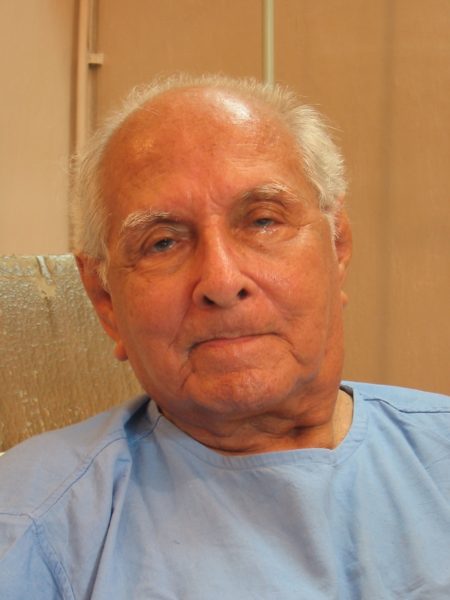
Kaikhushru Dhunjibhoy Sethna (K.D. Sethna) alias Amal Kiran (25 November 1904—29 June 2011) was a multi-faceted genius. Born in a Parsi family, he had his early education at St. Xavier’s School and College. At college he won in his Intermediate Arts examination of Bombay University the Hughlings Prize in English and the Selby Scholarship in Logic. He passed his Bachelor of Arts with Honours in Philosophy and won the Ellis Prize in English. His first book ‘Parnassians’ was published in 1922 and it was a critical analysis of the works of H.G. Wells, George Bernard Shaw, G.K. Chesterson and Thomas Hardy. H.G. Wells had remarked about the young writer to the Parsi author A.S. Wadia: “Your young man will go far.”
K.D. Sethna joined the Sri Aurobindo Ashram at the age of twenty three on 16 December 1927. On his request he was given the name of ‘Amal Kiran’ meaning ‘The Clear Ray’ by Sri Aurobindo on 3 September 1930. From 1949 he was the editor of the monthly journal ‘Mother India’. His published works include volumes on poetry (The Secret Splendour, The Adventure of the Apocalypse, Overhead Poetry, Altar and Flame and Poems by Amal Kiran and Nirodbaran), literary criticism (Parnassians, Sri Aurobindo on Shakespeare, Sri Aurobindo—The Poet, The Poetic Genius of Sri Aurobindo, “Two Loves” and “A Worthier Pen”, The Obscure and the Mysterious: A Research in Mallarme’s Symbolist Poetry, Blake’s Tyger—A Christological Interpretation, Talks in Poetry, The Inspiration of Paradise Lost, “A Slumber Did My Spirit Seal”: An Interpretation From India, Adventures in Criticism, The Thinking Corner, Classical and Romantic: An Approach Through Sri Aurobindo and Sri Aurobindo on Greece), philosophy (Teilhard de Chardin and Sri Aurobindo, The Spirituality of the Future, The Vision and Work of Sri Aurobindo, Aspects of Sri Aurobindo, The Mandukya Upanishad and The Development of Sri Aurobindo’s Spiritual Thought and the Mother’s Contribution to it), history and culture (Evolving India, The Indian Spirit and the World’s Future, The Problems of Aryan Origin, Karpasa in Prehistoric India, The Sun and the Rainbow, Ancient India in a New Light, The Beginning of History for Israel, India and the World Scene, Problems of Early Christianity, Teilhard de Chardin and Our Time, Problems of Ancient India, The Virgin Birth and the Earliest Christian Tradition, Life-Poetry-Yoga, Volumes I-III, A Follower of Christ and a Disciple of Sri Aurobindo and The English Language and the Indian Spirit.
He was also the recipient of the Devavrata Bhishma Award in 1994, Sri Aurobindo Puraskar in 1998 and Certificate of Merit in 2009 the last being awarded by the Department of Information and Publicity of the Government of Pondicherry.
Prof. Arabinda Basu (22 July 1918—3 July 2012) was a noted professor of Philosophy whose association with Sri Aurobindo Ashram began in 1938. After obtaining his M.A. degree in Philosophy he joined the Benares Hindu University as a lecturer in Indian Philosophy and Religion. He was also a Spalding Lecturer in Indian Philosophy and Religion at the University of Durham in United Kingdom, visiting professor at Claremont College of Claremont (California), Professor of Religion at Dubuque (Iowa), Professor of Philosophy at Punjab University (India), professor at the Institute of Ecumenical Studies at Celigny (Switzerland), lecturer at the Harvard School of Divinity and Centre for the Study of World Religions at Harvard. He became an inmate of Sri Aurobindo Ashram in 1968 and joined Sri Aurobindo International Centre of Education as a professor. He served as the Editor of the yearly magazine Gavasena. He was also an eloquent speaker who was invited quite often to speak on the philosophy of Sri Aurobindo. In 2011 an anthology of his articles, mostly delivered as lectures, was published under the title of Sri Aurobindo: The Poet, Yogi and Philosopherby the Centre of Sri Aurobindo Studies (Jadavpur University). His other publications include A Preface to the Study of the Bhagavata Purana, Brahman and Ishwara, in the Philosophies of Shankara and Sri Aurobindo, Sri Aurobindo- A Garland of Tributes (Editor), The Mother – A Bouquet of Homage (Editor) and Nirodbaran – Sadhak and Poet (Editor). His articles have also been published in the Encyclopedia Britannica, History of Philosophy – Eastern and Western – Edited by S. Radhakrishnan and The Cultural Heritage of India – Published by the Ramakrishna Mission Institute of Culture – in seven volumes.
Jugal Kishore Mukherjee (9 July 1925-15 December 2009) was born in a remote village of Bengal. While he was still a college student he came in contact with Sri Aurobindo Pathamandir of Kolkata and thus turned to Sri Aurobindo and the Mother. A student of the renowned physicist Meghnad Saha, he joined Sri Aurobindo Ashram as an inmate in 1949 at the age of twenty-four. He taught Physics in the Ashram School and also organized the Higher Course of Sri Aurobindo International Centre of Education and served it as its In-charge. Not only was he a brilliant teacher but was also an extraordinary writer. His published works include The Destiny of the Body (1975), Sri Aurobindo’s Poetry and Sanskrit Rhetoric (1989), From Man Human to Man Divine (1990), Sri Aurobindo: The Smiling Master (1995), K.D. Sethna: The Wonder that is Amal Kiran (1994), The Practice of the Integral Yoga (2003), The Mystery of Death, Fate, Karma and Rebirth (2004), Sri Aurobindo Ashram: Its Role, Responsibility and Future Destiny, The Ascent of Sight in Sri Aurobindo’s Savitri, Principles and Goals of Integral Education in English and Purna Yoger Sadhan Paddhati and Mrityu Rahasya in Bengali. He was awarded the ‘Auro-Ratna Award’ posthumously and Shri Manoj Das Gupta (Managing Trustee of Sri Aurobindo Ashram Trust, Pondicherry) had accepted the award on his behalf.
To read the report of the inaugural “Auro-Ratna Award”, click on the following link:
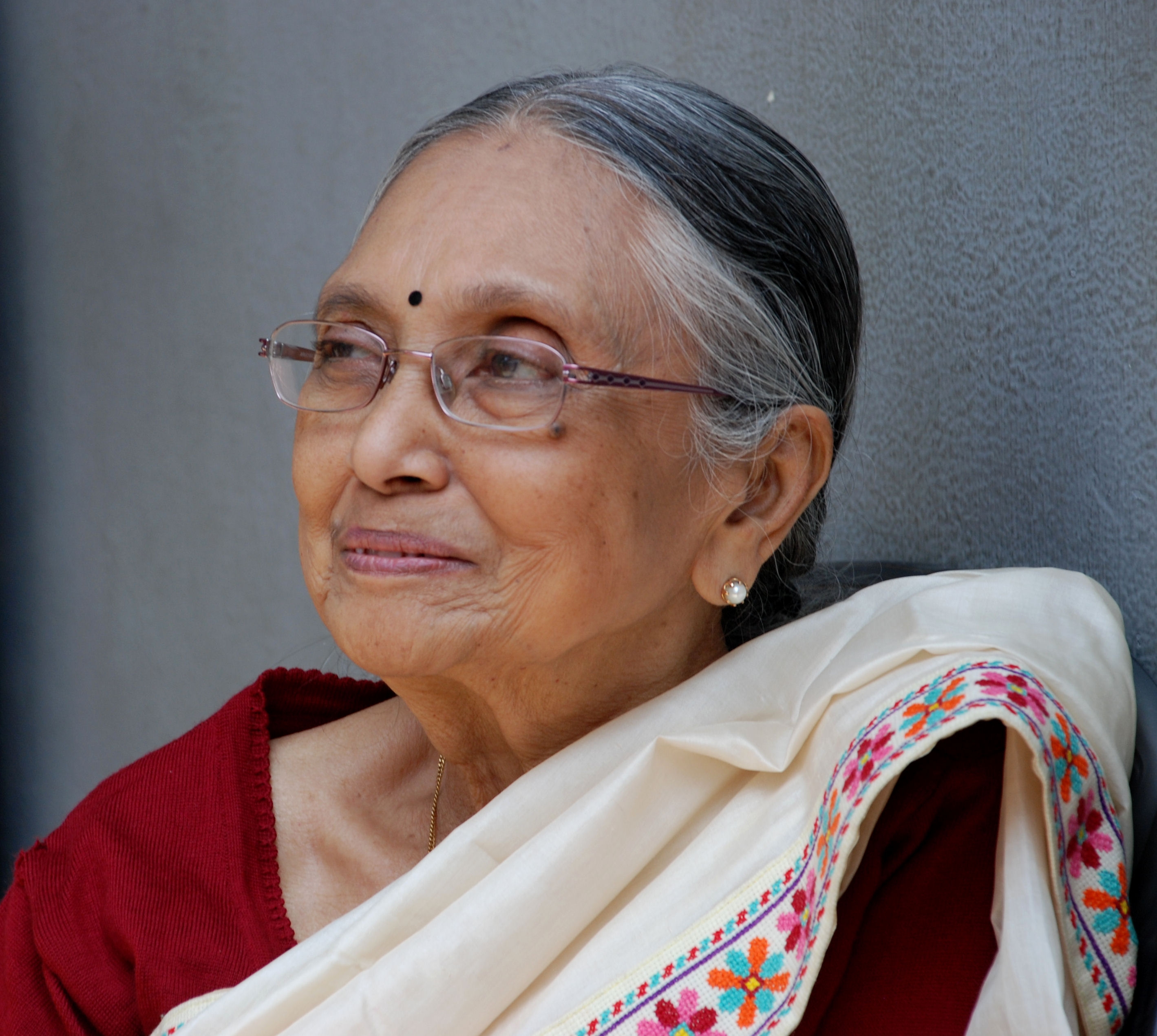
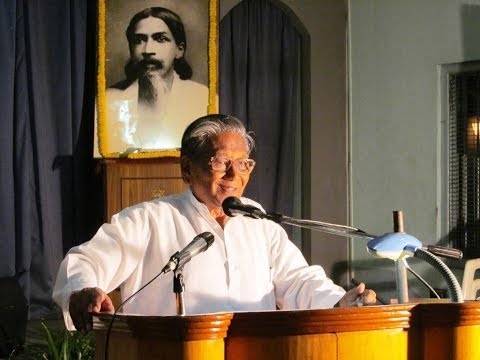
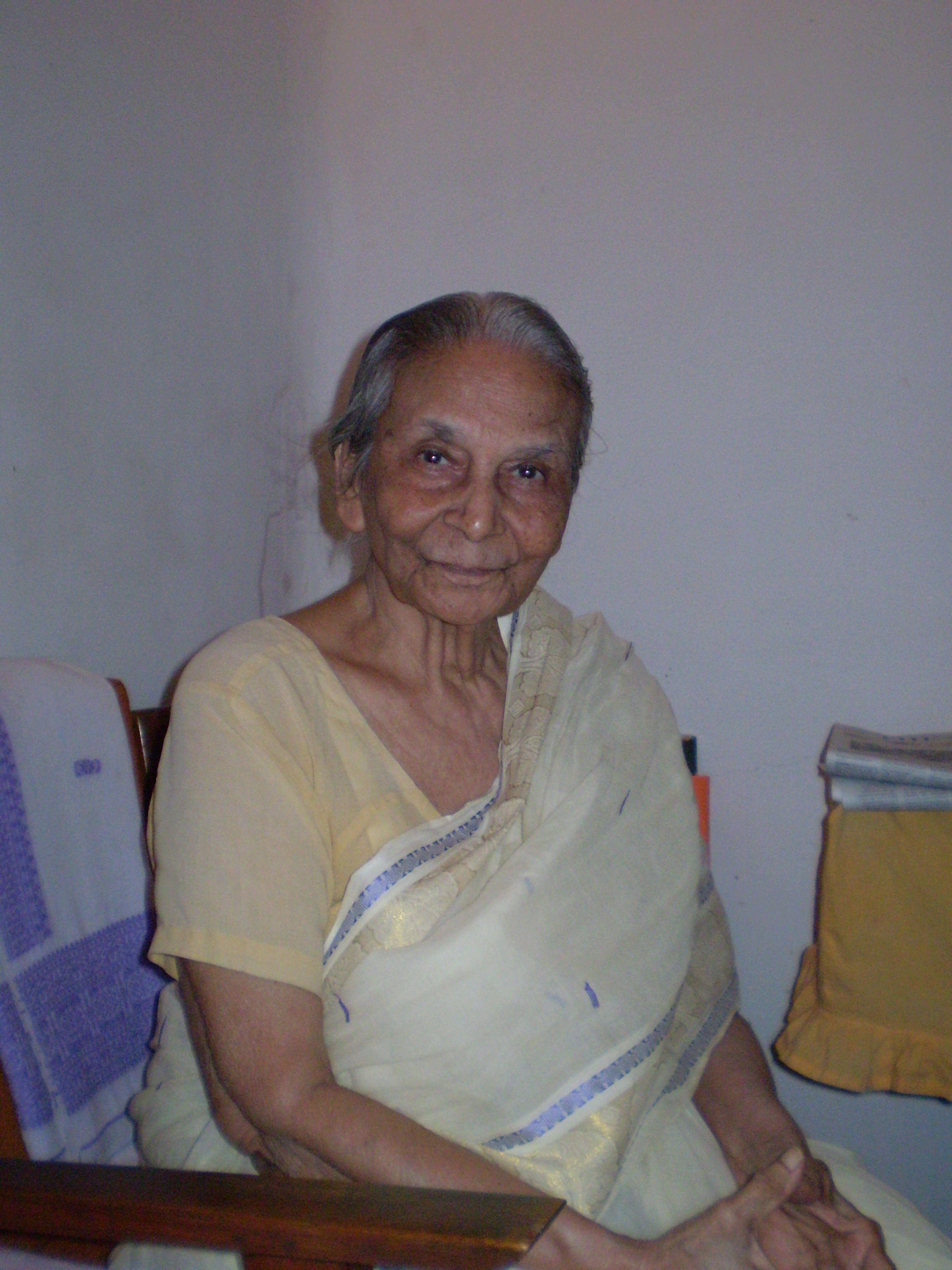
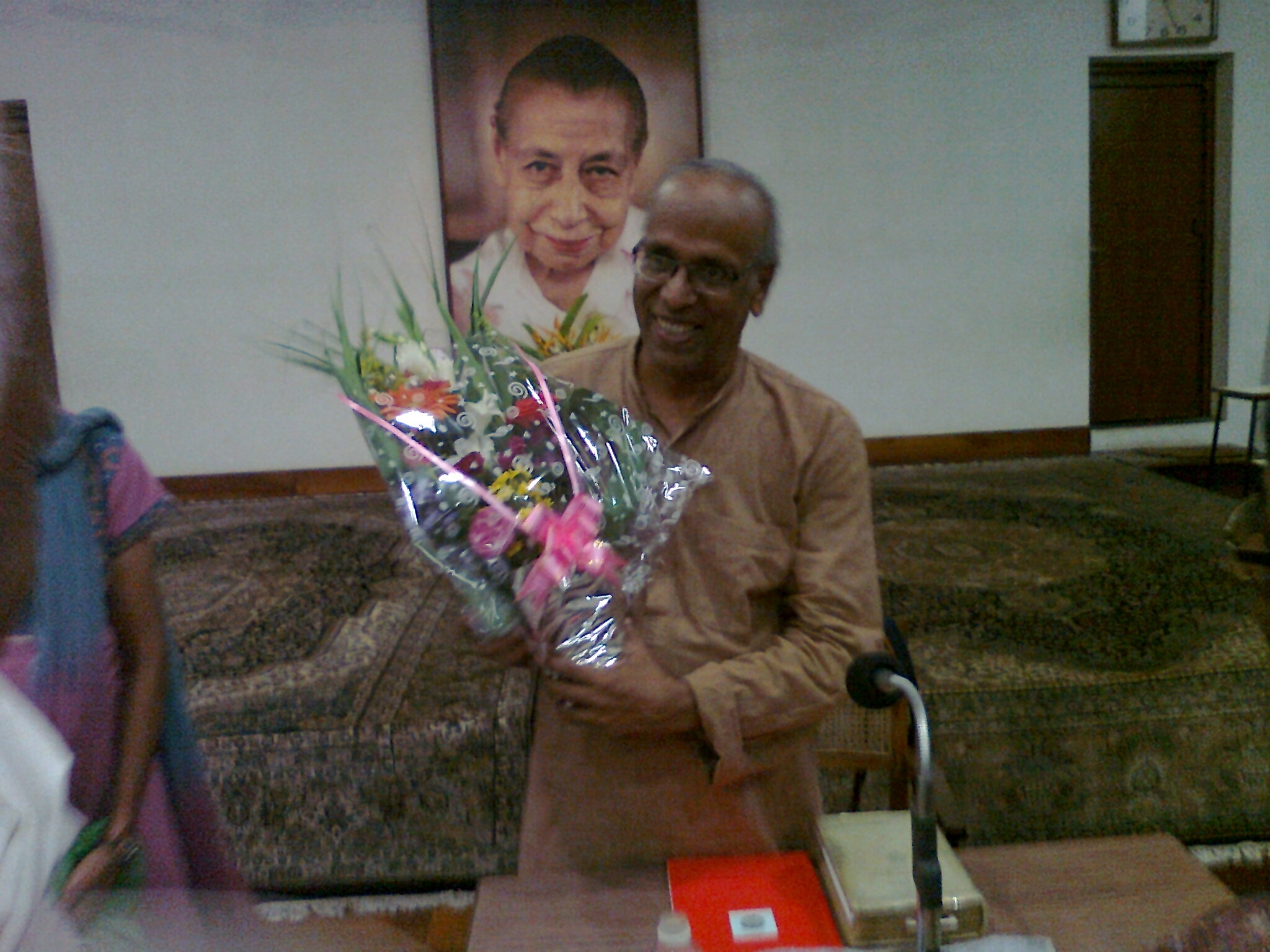

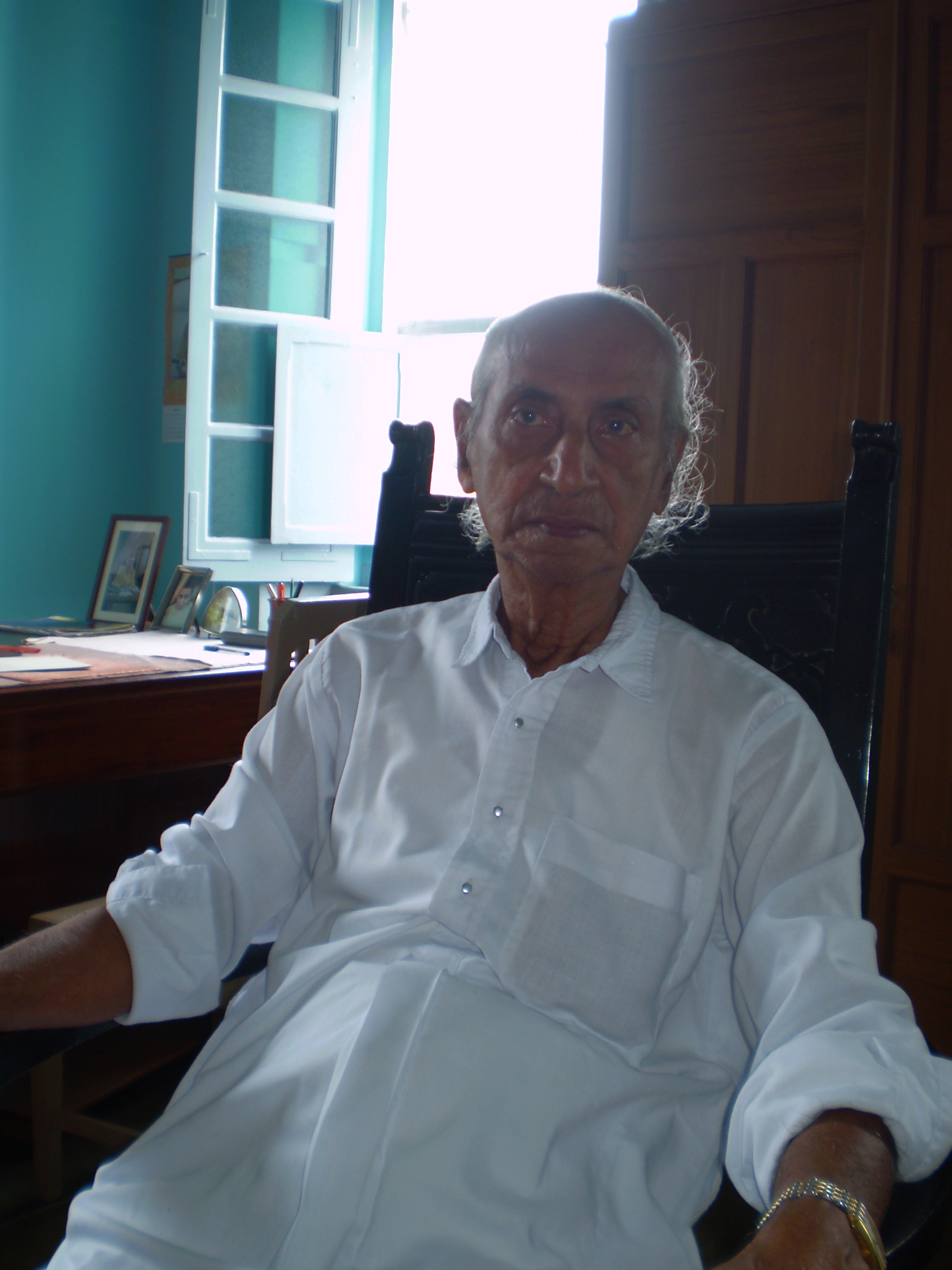
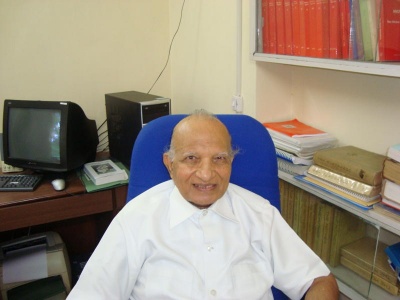
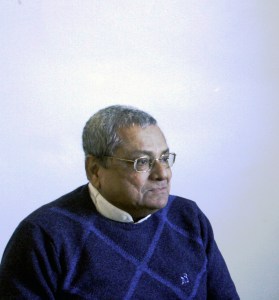
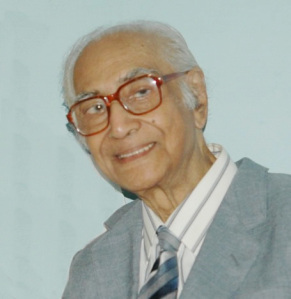

A site I visited today, and found I a m blessed. Important information I am reading. Thanks.